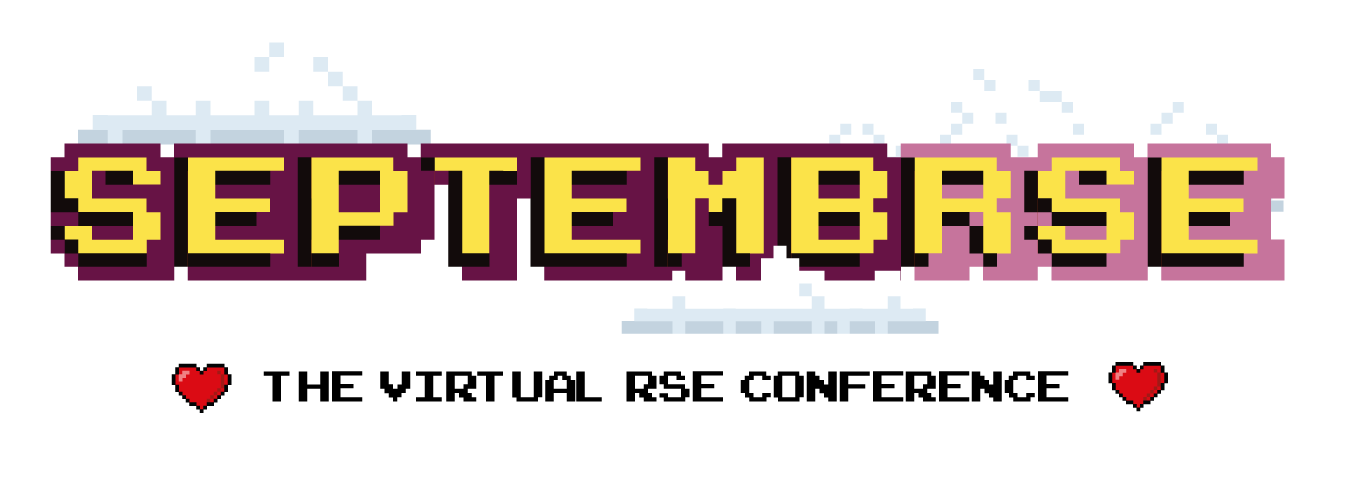SeptembRSE is being conducted online, giving us an extraordinary opportunity to organize it in a more accessible manner. Being online removes many accessibility considerations that are associated with a conference venue such as availability of barrier-free access, gender neutral washrooms, private/quiet spaces, hearing aids, catering choices and the like. On the other hand, it brings with it considerations related to digital accessibility.
Our guiding principle in this regard is to make materials related to the conference such as any presentations, documents, posters, codes, tools and (sponsored) virtual swags (hereafter simply called conference-related material) accessible to as broad an audience as possible, while respecting the rights to ownership and to privacy. Since, at times, the two requirements can be difficult to reconcile with the limited resources that we have, we expect the stakeholders to strive towards increasing accessibility for all by following the guidelines below while maintaining an optimal level of privacy as covered by our Code of Conduct.
Steps we have taken to improve accessibility
- We expect all conference-related material to use suitably large and legible fonts and be checked for colour choices so that the figures are understandable for people who are colourblind. It would be excellent if all figures in the conference-related material, especially documents and presentations, could be annotated before release: most modern office suites and document layout engines can help with that. If not, sometimes the simple act of renaming image files (to something meaningful) before including them in a document can be useful for members of the audience that rely on annotations.
- We would also like to remind all stakeholders that their choices when creating a document can have a significant impact on its accessibility. A helpful resource to guide the process can be found at Creating Accessible Documents.
- We expect all conference-related material to be released publicly under a CC-BY license (where possible), before the conference, so that it can be made available for public access before, during and after the conference. Ideally, a consolidated copy of all the material would also be sent to the organizers for archival purposes.
- We intend to record all events held under the umbrella of this conference by recording the audiovisual feed of its events, and make the recordings publicly available. We also intend to provide closed-captioning during the conference events (live broadcast) as well as afterwards (on recorded videos).
- We acknowledge that high-speed internet connections and suitable computing hardware/software may not be readily available to everyone. This can make it difficult to present material, lead to poor communication because of dropped data packets as well as severely hinder attempts to follow a workshop/walkthrough or similar work-along events such as live-audience polls. We hope that attendees, especially with slower connections, could still benefit if they make full use of the fact that conference-related material would be made available in advance, recordings will be made available after the event and that most resources (with the likely exception of remote servers or services that may be spun-up for a walkthrough or workshop) will stay online beyond the duration of an event.
- In the same spirit, we request presenters of conference-related material to leave appropriate contact details within the material so that they may be sent queries by future members of the audience that might view the recordings of their event(s).
- Any exceptions to the expectations related to conference-related material must be discussed with the organizers in advance, ideally alongwith the submissions made in response to the calls.
Is something missing?
Have we neglected something you need, or is there something not mentioned here that would make your attendance possible, or improve your experience of the event? Please let us know. We’ll do what we can to provide it.
Please contact the accessibility and diversity chair, Shashank S Harivyasi at [email protected], to discuss any particular accessibility needs or diversity concerns you might have.
